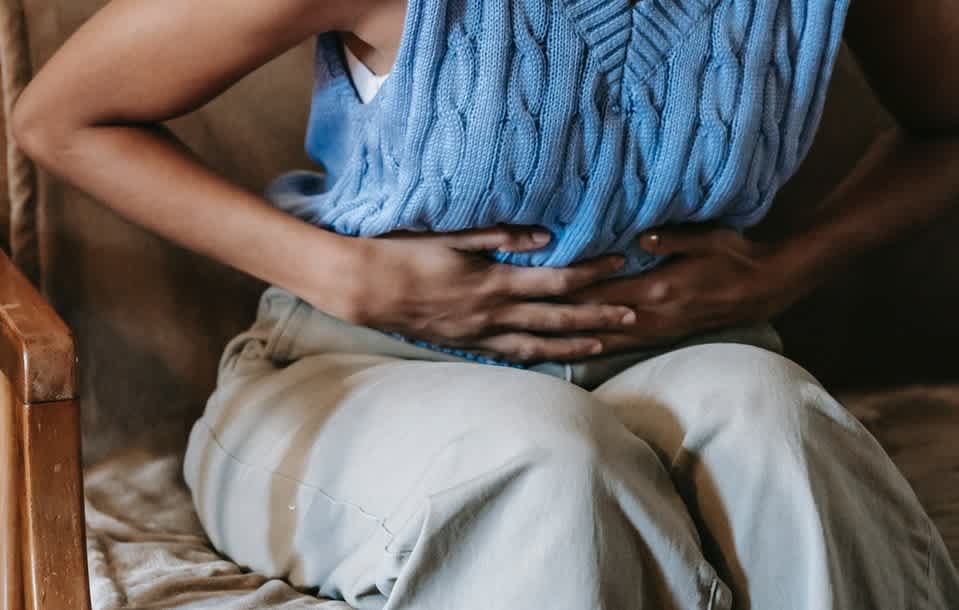If you have clients that are prone to heavy, irregular, or just uncomfortable periods, you may get asked questions about if, or how, acupuncture can help. In this article, we answer the question “Can Acupuncture Induce Periods?”, as well as a number of other common period-related questions regarding acupuncture.
So, can acupuncture induce periods? Typically, acupuncture regulates periods and, in some cases, can alleviate its symptoms. Acupuncture usually will not induce periods, unless in situations where the period is absent (Amenorrhea) in which acupuncture may help to restore regular cycles over time.
Read on to learn more about the benefits of acupuncture for periods.
Can Acupuncture Induce Periods?
There is little evidence to suggest that acupuncture induces periods. Acupuncture is used to regulate periods, as well as to manage period pain and other symptoms. However, there are studies (1, 2) that have looked into acupuncture as a treatment for Amenorrhea and PCOS to restore regular periods and/or ovulation, with small success.
Can Acupuncture Delay Periods?
Similar to inducing periods, acupuncture should not delay periods. It typically has a regulating effect. If a client experiences delayed periods after acupuncture, it’s best to recommend that they take a pregnancy test, and/or consult their GP.
Can Acupuncture Regulate Periods?
There is preliminary research that concludes that acupuncture may improve menstrual health by influencing female reproductive functioning; although, the study does state that the actual methods and mechanisms involved are not yet clarified.
That said, many acupuncture practitioners and patients have boasted of the effects of acupuncture on regulating periods. Women’s Health Melbourne claim that it works to restore regular menstruation in women with irregular periods and in women where the period is absent; for example, in cases of PCOS and Amenorrhea.
Seemingly, the best results are achieved with weekly acupuncture appointments that are directed at correcting any imbalances in the body. Sessions should also coincide with the specific physiological changes of each phase of the menstrual cycle - the menstrual, follicular, ovulation, and luteal phases.
- Menstruation (Days 1-7) - In this phase, acupuncture is directed at moving blood in the uterus to ensure that the endometrial lining is fully shed, and to reduce pain.
- Follicular (Days 8-14) - Acupuncture is aimed at improving the uterine and ovarian blood flow in order to aid the development of the ovarian follicles. It also aims to increase the lining of the endometrium and increase cervical fluid.
- Ovulation (Day 15) - In this phase, acupuncture is focused on assisting the release of the egg.
- Luteal (Days 16-29) - Depending on whether or not pregnancy is trying to be achieved, this phase can be focused either on assisting implantation and reducing the risk of miscarriage or can be focused on regulating flow in preparation for the next cycle. It can also help to reduce the symptoms of PMS.
Can Clients Have Acupuncture on Their Period?
It is perfectly safe for women to have acupuncture at any stage of their menstrual cycle. In fact, acupuncture may have different benefits for women at different stages of their cycle. Experts state that acupuncture assists the regulation of periods in 3 ways;
Regulating the Feedback Loop
Regulating the feedback loop between the brain and the ovaries (the Hypothalamic-Pituitary-Ovarian Axis) helps to balance hormones which, in turn, benefits the menstrual cycle and promotes ovulation.
Improved Blood Flow
Acupuncture may improve blood flow to the ovaries and uterus. It calms the nervous system and dilates blood vessels, which improves the flow of blood. This ensures well-nourished ovaries, and good blood flow to the uterus which ensures the endometrial lining is able to grow to an appropriate thickness to allow for periods.
Promotion of Ovulation
As well as improving blood flow and regulating the feedback loop, acupuncture may also help promote the Luteinising Hormone surge which triggers the egg to be released from the dominant follicle on the ovary.
If you’d like to learn more about the safety of acupuncture, read our recent blog on the topic. We go over a number of risks associated with acupuncture, contraindications, and compare the safety of acupuncture to western medicine, such as painkillers.
Does Acupuncture Work for Period Pain?
Acupuncture has a fantastic reputation for reducing period pain and other period symptoms. A study from 2011 reported that women experienced a significant reduction in period pain during a course of acupuncture, although this significance lowered towards the end of the trial, suggesting short-term relief.
Experts claim that acupuncture for period pain works through acupoint stimulation which increases blood flow to the uterus, as well as increasing endorphin levels, both of which helps to minimise the pain felt from cramps and improved PMS symptoms.
Does Acupuncture Work for Heavy Periods?
There is a good level of both clinical and anecdotal evidence of acupuncture being beneficial in reducing the intensity of menstrual symptoms and in the length of time that they are experienced. This is true of both light, regular, and heavy flows. Some claim that acupuncture may also be effective in the treatment or management of conditions such as Endometriosis.
Acupuncture for Women’s Health CPD Courses
Breeze Academy, one of the UK’s leading CPD providers, offers an intermediate acupuncture CPD course that focuses on acupuncture in women’s health. It covers the treatment of pregnancy-related pelvic girdle pain (PPGP), hot flushes, overactive bladder, dyspareunia, nausea and vomiting, as well as needling safety in pregnancy.
For those healthcare professionals that are new to acupuncture, we also offer foundation-level acupuncture courses that will teach you to implement safe & effective acupuncture and dry needling techniques, throughout the body.
Take a look at our range of acupuncture and dry needling courses today to learn more.
